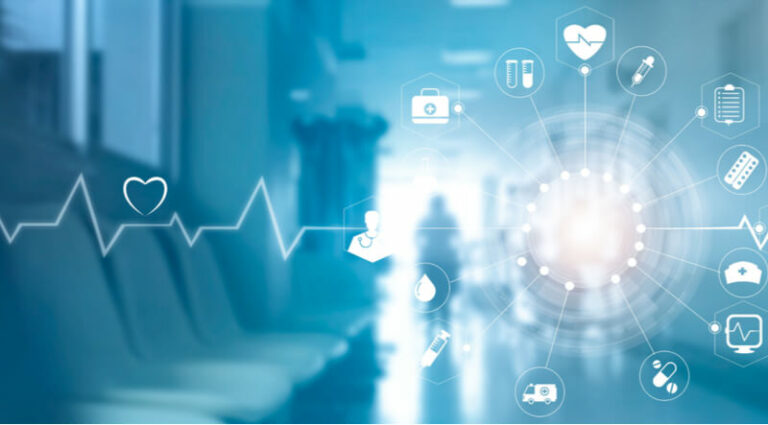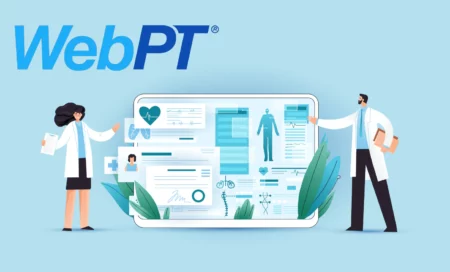Hospital management software (hospital information systems) largely aids in administrative tasks such as financial accounting, maintaining correct patient records, and scheduling at a hospital. Comprehensive hospital software helps you make important decisions, like where to put patients so they get the best treatment and when to buy the tools and equipment your hospital needs. Data analysis will be made easier by hospital management software, which will help you improve your revenue cycle and manage your employees more effectively.
15 Best Hospital Management Software in 2022
To improve the efficiency of their business procedures, more hospitals are turning to ERP systems. Prepare for business risks caused by pandemics and other health emergencies by putting in an ERP. According to HIMMS Analytics, hospital management software has been steadily increasing in popularity over the past ten years. By 2018, 38.4 percent of hospitals will have used hospital management software, up from 18.8 percent in 2008. The fact that almost every hospital management software already has an EMR system and patient billing software doesn’t mean that there aren’t more ERP systems for supply chain management, personnel management, and financial accounting now.
Financial Accounting Features of hospital management software
Financial Accounting
Accounting records income from donations and money paid for services, as well as wages and the purchase of medical equipment and supplies.
Electronic Medical Records (EMRs) (EHR)
The Electronic Health Record (EHR), originally known as Electronic Medical Records (EMR), is a database that stores patient data and medical history. In a patient’s digital medical file, an EHR allows patient-centered information to be updated in real-time. The electronic health record (EHR) maintains track of information such as:
- Management of the medical records department includes keeping track of patient medical histories and ICD codes.
- Medical data management includes keeping track of patient intake and outtake forms, as well as their prescription histories.
- Patient registration saves and manages patient data such as names, dates of birth, current address, phone number, and email address, as well as job and insurance information.
Management of the Inpatient Department (IPD)
Keep track of the patient’s admission information, doctors or surgeons who are treating him or her, the patient’s food requirements, discharge instructions, and permission paperwork.
Management of the Outpatient Department (OPD)
Track patient information for individuals who aren’t hospitalized, such as test results, procedures, diagnostic imaging, x-rays, and billing. Patients may get text messages or emails from hospital management systems about payment due dates, appointment reminders, and new records.
Scheduling Patients
Staffing: allocate physicians and personnel to patients depending on the patient’s needs and the credentials of the staff. Room/equipment scheduling: keep track of which rooms are occupied and which are unoccupied, as well as where equipment is located and who is utilizing it. Remind patients of their appointment dates and times by text, email, or an automated phone call.
Billing for Medical Services
Medical billing is in charge of the billing process, which is also called revenue cycle management. This includes verifying insurance before the appointment, processing co-pays, tracking and coding billable procedures, sending the patient a statement, and keeping track of profitability. According to a Black Book report, 26% of hospitals in the United States do not have a revenue cycle management system. Hospital software may be able to help you speed up your revenue cycle and get more money paid on time by automating invoices and sending automatic payment reminders.
Regulatory Compliance and Risk Management
Risk management features in hospital software assist in guaranteeing that your healthcare institution complies with federal and state requirements, such as:
- HIPAA-Protects personal health information Security measures are in place in hospital management systems to make sure only people who are supposed to have access to private patient information can see it.
- HL7-Health Level-7 (HL7) is a set of standards for transmitting administrative and clinical data between various software systems used by healthcare professionals. Hospital management systems make sure that healthcare data meets HL7 standards, so it can be accessed from all over the world.
Hospital Management Software’s Advantages
Only people who are supposed to have access to sensitive patient documents are able to see them, thanks to hospital management software.
- Within the system, different roles can be set up to give different people different levels of access. Doctors, for example, have access to extensive medical records, but receptionists do not.
- Information sharing between departments and clinics: A hospital management system makes it easy to send patient information and medical data across departments or clinics.
- If a doctor sends a patient to another department or clinic for additional testing or surgery, the information will be sent to them electronically, eliminating the need for patients to re-state their needs.
- Spend less time seeking equipment: Asset tracking in the hospital software system allows you to track down where your equipment is and who is using it, so you don’t have to waste time hunting for it.
- Improved revenue cycle management: By tracking outstanding debts, generating bills, and calculating interest, hospital management software may help you manage patient billing.
- To make sure patients don’t forget to pay, the software may also send patients automatic reminders about their payment due dates. Automate regular procedures so your team can focus on delivering excellent patient care. When your staff isn’t bogged down with paperwork, they can focus on providing great patient care.
- Some hospital management software allows patients to fill out intake forms, update their medication histories, and book appointments online.
Patients can pay bills, request appointments, and view medical records online. Some hospital management systems include a patient portal that allows patients to pay bills, manage appointments, view summaries of previous visits, and view upcoming tests or vaccination due dates from any computer or mobile device.
1. eClinic Systems
eClinic Systems is an online clinic management system. Patient Care Management, Mobile App, Scheduling Online Appointments, Secured Messaging, Portals, eBilling, Insurance, Accounting, HR/Payroll, and HL7/Integrated PACS are all features of eClinic Systems’ medical practice management system. This integrated system is made up of
2. ERP4Health
While providing high-quality services remains a top goal for providers, finding methods to save costs has been a top focus. Finding methods to simplify procedures, remove inefficiencies, boost productivity, and……
3. Affinity ERP
Harris Healthcare’s complete ERP, Decision Support, Patient Self-Service, and Revenue Cycle Management software and services help small and medium-sized hospitals, healthcare systems, and large physician and long-term care organisations maximize cash flow.
4. SoftClinic
SoftClinic’s electronic health record (EHR) and hospital information system (HIS) modules help hospitals, clinicians, and clinics run their businesses and cut down on paper. Your patients can also use the patient portal to get medical information from you.
5. Insta HMS
Practo’s Insta HMS is a hospital information system that enables healthcare organizations of all sizes, from single-location specialized clinics to multi-location hospitals, to generate revenue, improve productivity, simplify operations, and eliminate inventory leakage.
6. MedEZ
Both outpatient and inpatient programs can benefit from MedEZ’s full-service clinical solution. The practice management application is a management system that allows for significant coordination across all levels of facility operations.
7. Epic
Epic Systems is a provider of electronic health record software for hospitals and clinics. Epic Systems provides patients with the resources they need to be healthy, assists you in improving your patients’ health and care, and offers specialist care modules.
8. Sage Intacct
Sage Intacct is cloud-based accounting software. Sage Intacct is a cloud-based accounting and financial management software tool for small and medium-sized businesses that can be used from anywhere. Sage Intacct was made by finance experts for finance professionals, and it can do a lot of work for you.
9. NetSuite ERP
NetSuite ERP (Enterprise Resource Planning) is an ERP (Enterprise Resource Planning) system. NetSuite ERP is a software-as-a-service (SaaS) cloud ERP software platform that is cloud-based and developer-hosted. NetSuite promotes its ERP software as “the world’s most deployed cloud ERP.” Over 40,000 people use NetSuite ERP…
10. Infor CloudSuite Business
Boost your company’s speed, agility, and growth with a cloud-based operations platform. Any small or medium-sized business, whether it’s B2B or B2C, needs to make strategic decisions. Agility is a key component of next-generation organizations’ success…
11. Binary Stream Healthcare Materials
Healthcare Materials Management is a comprehensive Microsoft Dynamics GP-based supply chain management system. The importance of materials is underscored by the fact that materials are the second greatest expense for healthcare service providers.
12. Multiview
Multiview offers a versatile and comprehensive suite of financial solutions for enterprises looking for a solution that fits seamlessly into their present processes. Multiview provides companies with improved insight into their company data, resulting in a more…
13. Oracle ERP Cloud
When you use Oracle Cloud ERP (previously Oracle Fusion), there are many different ERP products that you can choose from. It’s an all-in-one set of business modules that work together. Cloud apps help with finance, project management, procurement, risk management, and other business tasks.
14. Executive Series
The Executive Series is a fully integrated accounting system with powerful drill-down features. The Executive Series can be completely changed through source code to meet your company’s needs. File attachments, workflow, and other standard functions are included.
15. BPA Quality
BPA Quality for SharePoint is a new system for managing quality, health, safety, and the environment (QHSE) and risk. Take a look at the usual use case examples below to learn more about essential features. QHSE, Risk, or Internal Audit Management…


















